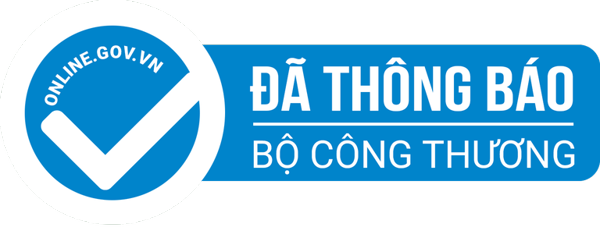Looking back on the 50 years since national reunification, Vietnam has made significant strides across many sectors, including science and technology. The AI market in Vietnam is becoming increasingly vibrant and promising, a testament to the country’s remarkable growth.
With supportive policies from the Party and the State, abundant tech talent, and vast data resources, Vietnamese technology companies are actively applying AI across diverse sectorsfrom customer service and digital government to smart cities.
More than just adoption, Vietnamese enterprises are also striving to master core technologies and build a strong AI ecosystem through close collaboration between major corporations and startups. This effort reflects Vietnam’s strong determination to leverage advanced technologies to propel national development, aiming for a smarter and more efficient future in the post-reunification era.
To gain deeper insight into the current landscape, opportunities, and challenges on the journey to mastering cutting-edge technologies, Dan Tri interviewed Mr. Nguyen Manh Quy, Director of Viettel AI - one of the pioneering units in AI development in Vietnam.
AI must be a strategic technology for Vietnam
Mr. Quy, in the context of Vietnam's rapid development, especially following the Politburo's Resolution 57 on breakthroughs in science and technology, how do you assess the current state of Vietnam’s AI market? Which areas are seeing the most dynamic AI applications?
Vietnam’s AI sector is currently very dynamic. Not only are major domestic companies active, but startups and international Big Tech firms are also strongly pushing AI adoption.
We’ve already seen a range of applications from smart surveillance cameras for traffic and security to electronic customer identification (eKYC), which allows users to access services online without visiting physical stores.
More recently, the emergence of large language models like GPT, Gemini, and Grok has made chatbots more intelligent and capable of natural interaction with humans, expanding AI’s applicability.
Previously, AI was mostly used in specialized, narrow use cases. Now, this advanced technology can do far more and is penetrating numerous industries.

Mr. Nguyen Manh Quy, Director of Viettel AI
Today’s AI applications mainly assist people in their work, especially personal tasks. For instance, marketers can use ChatGPT or Grok to draft communication plans, suggest key ideas, or even generate full strategies. They can then use AI-generated images, videos, and content to complete their materials. At Viettel AI, our marketing team uses these tools daily, they are indispensable. People now rely on ChatGPT to quickly acquire knowledge, even my child uses it for learning.
AI is no longer limited to companies with large investments. Many free AI tools now support individuals effectively. People are beginning to use AI as personal assistants. It’s like a second brain.
Large language models like GPT are trained on global data in multiple languages, including books, academic sources, and news, storing vast knowledge. So when you ask questions, these models respond effectively, boosting users’ capacity to process and understand information.
In the business sector, we apply AI across customer service, network operations, and internal management. Customers can interact with chatbots or voicebots for service inquiries or problem reporting.
Viettel itself uses support systems that help call center staff retrieve customer information faster. Our sales teams use chatbots to instantly access details about our products and services.
AI applications in enterprises are diverse. The rise of ChatGPT and LLMs has made AI smarter and more natural in communication, encouraging broader usage and offering great benefits both personally and professionally.
Should AI be considered a strategic technology that Vietnam must master?
This has already been affirmed in Resolution 57. AI must be on the list of strategic technologies. If we want to improve productivity, we must use AI. Mastering core AI technologies is essential.

Digital transformation without AI or big data analytics is less effective. The government is also drafting a strategy called “Digital Transformation with AI” in which Viettel is participating.
This strategy emphasizes smarter implementation and interaction through AI. I firmly believe AI must be a top strategic technology that Vietnam needs to control.
What are the current opportunities and challenges in AI development in Vietnam?
There are many opportunities. Thanks to leading global LLMs, we can easily integrate them with our own data to build specific Q&A applications.
For example, Viettel can use its pricing and policy data to build a customer-facing chatbot. Developing such smart bots is now much easier than before.
AI-powered automation platforms (AI Agents) are also evolving to support various skills, helping automate specific user tasks.
As technology advances, AI becomes smarter and easier to integrate into apps, creating countless business opportunities.
However, one challenge is that Vietnam currently lacks the infrastructure to independently research and build foundation models. While foreign platforms are helpful, they raise concerns about data privacy when using overseas cloud services.
Still, I believe the opportunities outweigh the risks. What’s important is for users to be aware and use these tools responsibly.
Recently, cases abroad have shown that employees uploading corporate data into public chatbots can lead to security breaches. The key issue is raising awareness and providing proper usage guidance.
Another challenge is the dominance of Big Tech companies over core technologies, especially LLMs from OpenAI, Google, Meta, etc. While the application layer offers many opportunities, relying too heavily on external core technologies poses risks. We must aim to master these foundational technologies to ensure long-term, sustainable development.
Vietnam’s competitive edge in AI
Compared to other Southeast Asian countries, what are Vietnam’s unique strengths or competitive advantages in AI?
When assessing Viettel’s and Vietnam’s competitive edge in AI, international partners often recognize our strong human resources.
Vietnam has a solid foundation in mathematics and a large pool of software developers. Our training programs in Computer Science and Data Science are expanding.
Moreover, Vietnamese tech professionals are highly enthusiastic about new technologies, giving us a significant advantage in the region.
Another strength lies in supportive government policies. Resolutions 57 and 71 promote digital transformation through the application of big data, AI, IoT, and more-accelerating smart development.
How would you evaluate Vietnam’s resources for Big Data, IoT, and AI?
Vietnamese people are among the most active users of social media and digital platforms globally. For instance, we’re one of YouTube’s top-viewing countries, and social media is widely adopted here.
This has generated vast amounts of data - an abundant resource for AI development.

However, most data platforms are owned by foreign Big Tech firms. While Vietnamese users generate the data, we lack direct access. If we develop strategies to harness this data for AI training, we can create models that better understand local users and advance our domestic technologies.
How do you assess Vietnam’s technological capacity in AI, IoT, and Big Data?
I believe Vietnam is keeping pace with global advancements. When new technologies emerge globally, Vietnamese companies quickly explore, test, and implement them.
As I mentioned, Vietnamese users adapt rapidly to new tools. For instance, ChatGPT has only been around for about three years, yet many people now consider it indispensable.
People use it to ask complex questions and get instant answers. It’s become a second brain that supports continuous learning and quick access to information.
How is Viettel involved in AI development?
We started working in AI in 2019. Of course, the journey has had its ups and downs.
Our advantage is that Viettel is Vietnam’s largest telecom operator, with leading mobile (4G/5G) and fiber optic networks, and the top data center infrastructure.
We recognized AI’s importance early on. In 2021, we invested in a supercomputer to train AI models, reducing machine learning training time by orders of magnitude.
In 2022, we partnered with Nvidia to launch the AI Nation program, giving us early access to advanced technologies.

Viettel’s eKYC has been widely applied in finance and other operations.
Recently, with the explosive growth of Generative AI and Agentic AI, we invested in a new data center in Tan Phu Trung, Ho Chi Minh City, with a 140MW capacity and a GPU system capable of 1.5 exaFLOPS, supporting models with up to 200 billion parameters.
We’ve also deployed over 1,000 GPUs to power AI services and accelerate smart transformation.
The future of AI: Agents and embodied intelligence
What AI trends do you foresee shaping Vietnam’s future?
After Generative AI, I think Agentic AI will be the next big trend. It automates micro-skills like writing an article or replying to emails.
In life, we perform many tasks. AI Agents will handle specific ones and evolve to support more skills. Instead of repetitive chatbot interactions, users will assign a goal, and the Agent will plan and execute the task.
AI Agents will even collaborate with one another to handle complex workflows more efficiently by combining small skills.
In the next few years, AI Agents will become mainstream for boosting productivity.
Looking further ahead (5-10 years), the next wave could be humanoid robots. AI will become embodied with physical presence, environmental awareness, and the ability to think and act autonomously.
Previously, AI was just abstract software. This new trend envisions AI with a body, combining hardware and software.
Smart AI like ChatGPT requires massive cloud infrastructure but deploying that intelligence into a robot demands major optimization in processing and energy.
That could be the next step after Generative AI and AI Agents, robots with intelligence and reasoning, capable of interacting and acting independently in the real world, not just following pre-scripted workflows.
Thank you, Mr. Quy, for your time and insights!
(Source: Dan tri)
Other news















